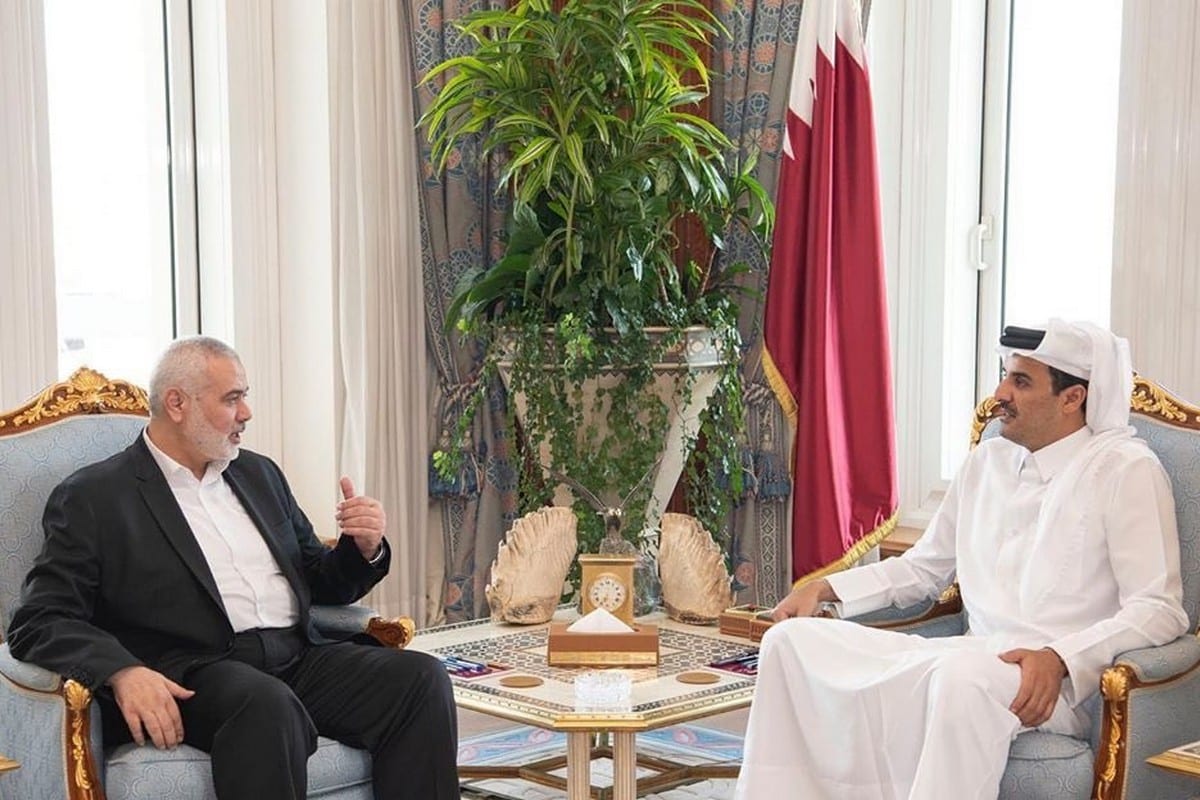In an interview with the website of the Strategic Council on Foreign Relations about the independence of the decision-making process in Qatar regarding the expulsion of the political branch of Hamas from the country, Hossein Ruyvaran said: It is not clear to what extent Qatar can keep the leader or leaders of Hamas in its territory, contrary to the opinion of the United States. Qatar has limited ability to defend itself, clearly evident in the crisis between Qatar and Saudi Arabia. Qatar quickly entered into conflict with Turkey, and Iran and Turkish forces were stationed on Qatar’s border with Saudi Arabia.
In fact, the Qataris resorted to Iran and Turkey on the one hand to counter the Saudi pressures. On the other hand, they allowed the Al Udeid American base to expand in this country and become the largest American air base in the world. Ruyvaran said Qatar’s foreign policy is based on balancing relations with global and regional powers. Therefore, Qatar is weak against American pressure and cannot say Washington. One of the most important approaches of Qatar in recent years has been the defense of the Muslim Brotherhood, including Hamas. As it has had extensive relations with Turkey and tens of billions of dollars in investments in this country, it has also supported the Brotherhood in Tunisia, Libya, and Syria. He said: Although Qatar’s society is Wahhabi, its foreign policy relies on supporting the Brotherhood. The presence of Sheikh Qaradawi in Qatar was one of the clear examples of the country’s support for Brotherhood personalities. Therefore, it is not consistent with the foreign policy of this country to say that the leader or leaders of Hamas leave Qatar at once. Thus, Doha cannot easily abandon the policy of supporting Hamas, which it has chosen and invested heavily in. In response to the question of what decision Qatar will make between loyalty to America and Hamas, he said Qatar will not easily expel Hamas because Hamas is an important tool for advancing Qatar’s policies in the region. Since the start of Operation Al-Aqsa Storm, Al Jazeera channel has dedicated 90% of its news to this issue. Therefore, the Qataris will resist the pressure from the Americans. This expert on regional issues continued: If the Qataris are asked to expel the leaders of Hamas, the leaders of this country if forced, will most likely choose the support and security umbrella of the United States. Of course, Qatar will resist this request as much as possible, and probably the US will not move towards the zero-100 equation because it is better for the leaders of Hamas to stay in Qatar, which is an ally of the US, than for Hamas to operate in a country outside of US power.
Ruyvaran stated: In case of leaving Qatar, although there is a possibility that Hamas will go to Jordan or Turkey, but what will happen if it comes to Algeria or Iran? America is losing its power to exert pressure on Hamas, especially since the presence of Hamas leaders in Qatar helps many things in the peace and truce talks. On the other hand, today, the Palestinian issue is a global priority, and the role of Hamas is also very prominent in it. Therefore, the US will not move towards expelling Hamas to an unknown place.










0 Comments